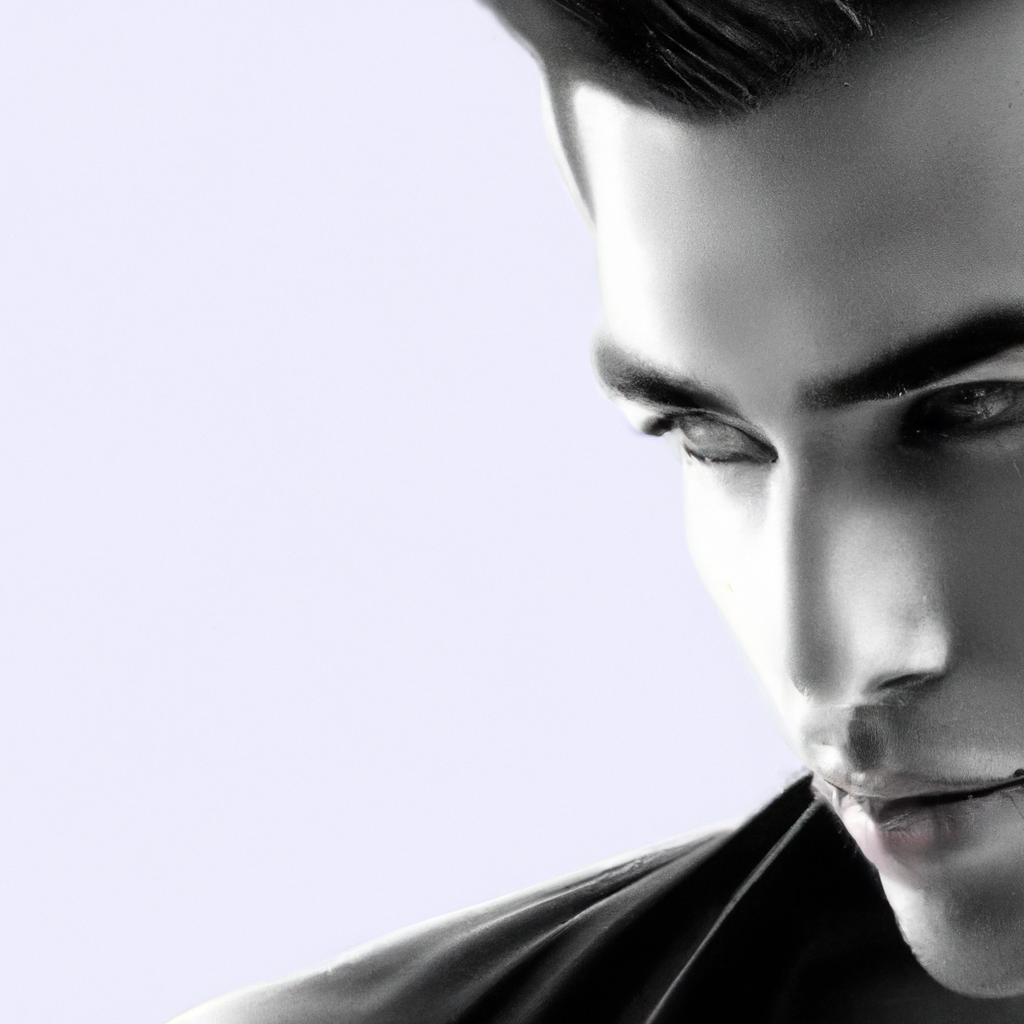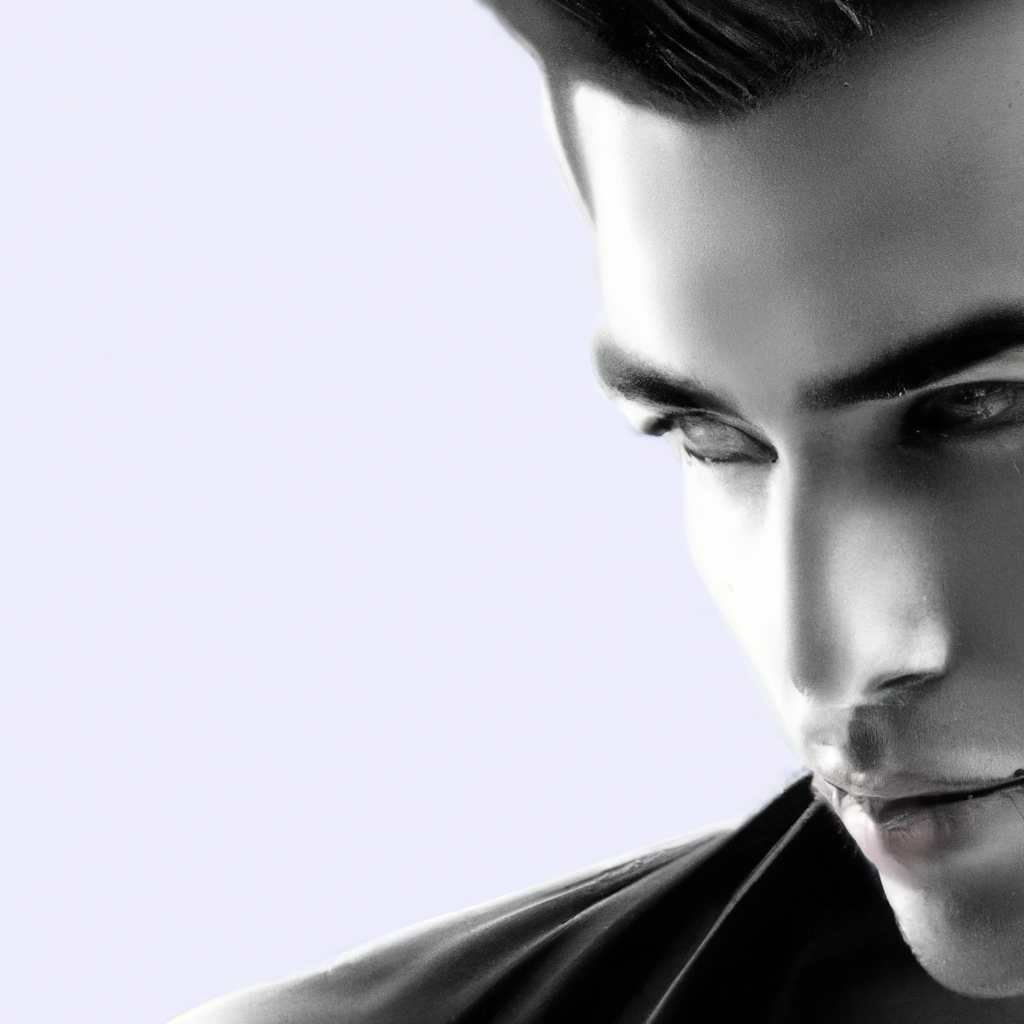Have you ever wondered why you can’t grow a beard? It seems like all your friends are sporting impressive facial hair, while you’re stuck with a patchy, sparse look. The frustration is real, but fear not! In this article, we will unravel the mysteries behind why some men struggle to grow a beard and explore possible solutions to help you achieve that coveted hairy masterpiece you desire. So buckle up and get ready to embark on a journey to understand the science behind beard growth.

Hormonal Factors
Testosterone levels
One of the main factors that affects beard growth is testosterone levels. Testosterone is the primary male sex hormone responsible for the development of masculine features, including facial hair growth. If your testosterone levels are below the normal range, it may contribute to a lack of beard growth. However, it is important to note that testosterone levels can vary greatly among individuals, and having low testosterone does not necessarily mean you will be unable to grow a beard.
DHT sensitivity
Another hormonal factor that can impact beard growth is the sensitivity of your hair follicles to dihydrotestosterone (DHT). DHT is a hormone derived from testosterone that plays a crucial role in hair growth. If your hair follicles are particularly sensitive to DHT, it can stimulate the growth of thick and healthy facial hair. Conversely, if your hair follicles are less sensitive to DHT, it may result in a sparse or patchy beard.
Androgen receptor genes
The presence and activity of androgen receptor genes also play a significant role in determining beard growth. Androgen receptors are proteins found in the hair follicles that bind to testosterone and DHT, stimulating hair growth. Genetic variations in these androgen receptor genes can impact their sensitivity to these hormones. Some individuals may have a genetic predisposition to high androgen receptor activity, leading to robust beard growth, while others may have lower androgen receptor activity, resulting in less facial hair.
Age and puberty
Beard growth is influenced by age and the onset of puberty. During puberty, hormonal changes occur, including an increase in testosterone production. As a result, facial hair begins to grow, and young men start developing their beards. The timing and extent of beard growth can vary among individuals, with some noticing significant growth during their teenage years, while others may experience delayed development. It is important to understand that beard growth takes time, and for some individuals, it may occur later in life.
Genetic Factors
Family history
Genetics also play a crucial role in determining your ability to grow a beard. Your family history, specifically the beard-growing capabilities of your male relatives, can provide valuable insights into your potential for facial hair growth. If you come from a family with a strong beard-growing lineage, it is more likely that you will have similar beard-growing abilities. On the other hand, if your male relatives have struggled with sparse or patchy facial hair, it may indicate that you may also face similar challenges.
Ethnicity
Ethnicity is another genetic factor that affects beard growth. Different ethnic groups have varying levels of testosterone, DHT sensitivity, and genetic predispositions to facial hair growth. For example, individuals of Middle Eastern or Mediterranean descent tend to have a higher likelihood of growing thick and dense beards due to their genetic makeup. On the other hand, individuals of East Asian or Native American descent may have less facial hair due to genetic factors. It is important to consider your ethnic background when evaluating your beard-growing potential.
Medical Conditions
Hypogonadism
Hypogonadism is a medical condition characterized by low testosterone levels in the body. It can be caused by various factors, including hormonal disorders, testicular injury, or certain medications. Hypogonadism can significantly impact beard growth, as low testosterone levels may hinder the development of facial hair. If you suspect you may have hypogonadism, it is essential to consult with a healthcare professional who can diagnose and provide appropriate treatment options.
Hormonal imbalances
Imbalances in hormones other than testosterone can also affect beard growth. Hormones such as thyroid hormones, insulin, and cortisol play crucial roles in regulating various bodily functions, including hair growth. If these hormones are imbalanced, it can disrupt the normal growth cycle of hair follicles, potentially leading to inadequate beard growth. Seeking medical advice and addressing any underlying hormonal imbalances may help improve beard growth.
Thyroid disorders
Thyroid disorders, such as hypothyroidism or hyperthyroidism, can have a significant impact on beard growth. These conditions occur when the thyroid gland does not produce enough or produces an excessive amount of thyroid hormones. Beard growth relies on a properly functioning thyroid gland, as thyroid hormones are essential for healthy hair follicles and hair growth. If you suspect you may have a thyroid disorder, it is important to consult with a healthcare professional for diagnosis and appropriate management.
Alopecia areata
Alopecia areata is an autoimmune condition that causes hair loss, including loss of facial hair. It occurs when the immune system mistakenly attacks the hair follicles, leading to hair loss in patches. If you have alopecia areata on your face, it can prevent the normal growth of facial hair. Treatment options for alopecia areata include corticosteroids, topical treatments, and immunotherapy. Consulting with a dermatologist who specializes in hair disorders can help determine the best treatment approach for you.
Nutritional Factors
Vitamin and mineral deficiencies
Proper nutrition plays a crucial role in maintaining healthy hair growth, including beard growth. Certain vitamins and minerals, such as biotin, vitamin D, zinc, and iron, are essential for promoting hair follicle health and stimulating hair growth. Deficiencies in these nutrients can lead to hair thinning or hinder the growth of facial hair. Ensuring a well-balanced diet that includes adequate amounts of these essential nutrients can support optimal beard growth.
Protein intake
Adequate protein intake is vital for hair growth, as hair consists primarily of a protein called keratin. Without sufficient protein, hair follicles may not receive the necessary building blocks to grow strong and healthy hair, including facial hair. Incorporating protein-rich foods, such as lean meats, fish, eggs, legumes, and nuts, into your diet can promote overall hair health and support beard growth.
Poor diet
A poor diet lacking essential nutrients can negatively impact beard growth. Diets high in processed foods, refined sugars, and unhealthy fats may contribute to nutritional deficiencies and impair the health of your hair follicles. To optimize beard growth, it is important to follow a balanced diet that includes a variety of fruits, vegetables, whole grains, lean proteins, and healthy fats. Additionally, staying adequately hydrated is essential for maintaining overall hair health.

Stress and Lifestyle
Chronic stress
Unmanaged chronic stress can disrupt various bodily functions, including hair growth. When you experience chronic stress, the body produces increased levels of the stress hormone cortisol, which can interfere with the natural growth cycle of hair follicles. Prolonged exposure to high cortisol levels can lead to hair thinning and impaired beard growth. Finding healthy stress-management techniques, such as exercise, meditation, or pursuing hobbies, can help reduce stress levels and promote optimal beard growth.
Lack of sleep
Adequate sleep is crucial for overall health and well-being, including proper hair growth. During sleep, the body repairs and revitalizes various systems, including the hair follicles. Lack of sleep can disrupt this rejuvenation process, affecting the growth and health of your beard. Aim for a consistent sleep schedule of 7-9 hours per night to support optimal beard growth and ensure overall wellness.
Smoking and alcohol consumption
Both smoking and excessive alcohol consumption can have detrimental effects on beard growth. Smoking restricts blood flow, including to the hair follicles, which can impair their ability to receive essential nutrients for growth. Similarly, excessive alcohol consumption can lead to nutritional deficiencies and hormonal imbalances, negatively impacting beard growth. Quitting smoking and moderating alcohol consumption can promote healthier hair follicles and enhance beard growth potential.
Skin Conditions
Dry skin
Dry skin can affect beard growth by making it difficult for hair to penetrate through the skin’s surface. When the skin is dry, it can become flaky and prone to irritation, hindering the growth of facial hair. Ensuring proper moisturization and skincare routine can help maintain a healthy moisture balance in the skin, allowing beard hair to grow freely.
Folliculitis
Folliculitis is a condition characterized by the inflammation of hair follicles, which can impede beard growth. It can be caused by bacterial, fungal, or viral infections or as a result of ingrown hairs. The inflamed follicles may prevent hair from growing properly, resulting in sparse or patchy beard growth. Proper hygiene, regular exfoliation, and avoiding irritants can help prevent and manage folliculitis, promoting healthy beard growth.
Eczema
Eczema, or atopic dermatitis, is a chronic skin condition that can affect beard growth. It is characterized by dry, itchy, and inflamed skin, which can disrupt the normal growth cycle of hair follicles. If you have eczema on your face, it may hinder beard growth and cause discomfort. Dermatologist-recommended skincare routines and treatment options can help manage eczema symptoms and support healthy beard growth.
Psoriasis
Psoriasis is a chronic autoimmune condition that affects the skin, causing red, scaly patches to develop. If psoriasis affects the area where your beard grows, it can hinder hair growth and result in sparse or patchy beard appearance. Consulting with a dermatologist and adhering to a personalized treatment plan can help manage psoriasis and improve beard growth.
Medications and Treatments
Chemotherapy
Chemotherapy is a treatment used to kill cancer cells, but it often leads to temporary hair loss, including loss of facial hair. Chemotherapy drugs target rapidly dividing cells, including hair follicles, resulting in hair thinning or complete hair loss. After completing chemotherapy treatment, hair typically starts to grow back, including facial hair. However, the regrowth process can vary among individuals.
Steroids
Certain medications, such as corticosteroids, may impact beard growth. Prolonged or high-dose use of systemic corticosteroids can disrupt the normal growth cycle of hair follicles and lead to hair thinning. However, corticosteroids are generally prescribed to manage specific medical conditions, and their impact on beard growth may vary depending on the dosage, duration, and individual response to the medication. If you are concerned about the effect of steroids on your beard growth, it is essential to discuss it with your healthcare provider.
Radiation therapy
Radiation therapy, often used to treat cancer, can also result in temporary or permanent hair loss in the treated area. If the radiation therapy involves the face, it may affect the growth of facial hair, including the ability to grow a full beard. The extent and duration of hair loss may vary depending on the radiation dose and individual response. Consulting with a healthcare professional can provide specific information on how radiation therapy may impact beard growth.
Personal Grooming Habits
Frequent shaving
Contrary to popular belief, frequent shaving does not stimulate or enhance beard growth. Shaving only affects the visible portion of the hair and has no impact on the hair follicles or their growth. However, shaving can create the impression of thicker beard growth as the hair shaft gets blunted, resulting in a coarser appearance. If you desire a fuller beard, allowing your facial hair to grow without frequent shaving may be beneficial.
Improper skincare routine
Maintaining a proper skincare routine is essential for the health of your skin and beard growth. Improper cleansing, excessive use of harsh products, or neglecting to moisturize can lead to dry skin, clogged hair follicles, and impaired beard growth. Opting for mild cleansers, gentle exfoliation, and using beard oils or balms can help keep the skin and facial hair healthy, promoting optimal beard growth.
Overuse of grooming products
While grooming products can help maintain the appearance of your beard, excessive use of certain products may have adverse effects. Overusing styling gels, waxes, or pomades can create build-up on the facial hair, weighing it down and potentially clogging hair follicles. It is important to read and follow product instructions, and avoid excessive use to prevent hindering beard growth.
Psychological Factors
Body dysmorphic disorder
Body dysmorphic disorder (BDD) is a mental health condition characterized by an obsessive preoccupation with perceived flaws in one’s appearance. Individuals with BDD may have distorted perceptions of their facial hair or be excessively critical of their beard growth despite having a normal or even impressive beard. If you suspect you may have BDD, seeking support from a mental health professional can help address these concerns and improve your overall well-being.
Self-esteem and body image
Self-esteem and body image can also impact how you perceive your beard growth. If you have low self-esteem or struggle with body image issues, you may be more likely to focus on perceived flaws or limitations in your beard growth. Building confidence and self-acceptance can positively influence your perspective and emotional well-being, regardless of your beard-growing capabilities. Engaging in self-care activities, practicing positive affirmations, and seeking support from loved ones can contribute to a healthier self-image.
Alternative Options
Beard transplantation
For individuals who struggle with significant beard growth limitations, beard transplantation may be an option to consider. Beard transplantation involves harvesting hair from other areas of the body, typically the scalp, and transplanting it into the beard region. This procedure is performed by a qualified cosmetic surgeon and can provide a more permanent solution for enhancing beard growth. It is important to thoroughly research and consult with a reputable professional to determine if beard transplantation is a suitable option for you.
Minoxidil use
Minoxidil is a topical medication commonly used to treat hair loss and promote hair growth. While it is primarily marketed for scalp hair, some individuals have reported success in using minoxidil to enhance beard growth. However, the effectiveness may vary from person to person, and it is important to consult with a healthcare professional before using minoxidil to discuss potential risks and benefits specific to your situation.
Facial hair implants
Facial hair implants, also known as beard implants, are a surgical procedure that involves transplanting hair follicles into the beard area. This procedure is similar to hair transplantation and requires expertise from a qualified cosmetic surgeon. Facial hair implants can provide a more permanent solution for individuals who struggle with sparse or patchy beard growth. If considering this option, it is essential to consult with a reputable professional who specializes in facial hair implants to determine the suitability and potential risks involved.
In conclusion, the ability to grow a beard is influenced by a combination of hormonal factors, genetic factors, medical conditions, nutritional factors, stress and lifestyle choices, skin conditions, medications and treatments, personal grooming habits, psychological factors, and alternative options. While some factors may be out of your control, understanding these factors can help you make informed decisions and adopt practices that promote optimal beard growth. Remember, beard growth is a personal journey, and each individual’s experience may vary. Embrace your unique attributes and focus on what makes you feel confident and comfortable.
